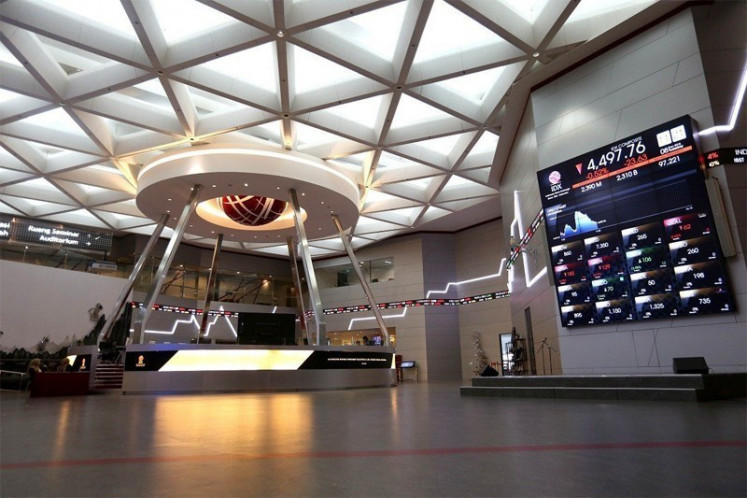Popular Reads
Top Results
Can't find what you're looking for?
View all search resultsPopular Reads
Top Results
Can't find what you're looking for?
View all search resultsYour letters: Produce our own national LCGC!
President Susilo Bambang Yudhoyono signed the government regulation on low-cost green cars (LCGC)
Change text size
Gift Premium Articles
to Anyone
P
resident Susilo Bambang Yudhoyono signed the government regulation on low-cost green cars (LCGC). The policy aims to reduce carbon emissions by decreasing fossil fuel consumption. This low cost emanates from the elimination of luxury-goods sales tax. And the types of green cars are electrical cars, hybrids, biofuel-based cars and compressed natural gas (CNG) cars. Can this policy expect any results? The answer is absolutely no. This policy is not only unable to reduce carbon emission, but will discourage our national automotive industry as well.
The main sources of Indonesia's greenhouse gas (GHG) emission are not from the transportation sector, but deforestation and land-use change. The other main culprits are peat fires and peat decomposition. These sources account for about 80 percent of GHG emission. Based on the data in 2005, the transportation sector contributed only 3 percent.
The vehicle's zero emission can technically only be reached if the vehicle is powered by electrical batteries, which are charged at stations with energy from wind or solar power plants (sustainable energy). Indonesia is yet to build such stations or power plants, so any car called 'green' here must be an illusion.
There are several other consequences of this frivolous policy. It will discourage the use of public transportation and cause more traffic in Jakarta and other big cities. It will increase fossil fuel consumption and as an oil importing country this will dispense our foreign exchange reserves and weaken our currency. And last but not least, this policy really confirms our negligence in mastering technology and developing a strong national industry.
Not long ago, we were surprised by the emergence of hopeful national cars, designed by vocational students, Kiat Esemka. And with less hype, PT Inka, the state-owned company has been developing GEA (Gulirkan Energy Alternatif). And what's interesting is that GEA is equipped with a domestically made engine, Rusnas. It is the Agency for Assessment and Application of Technology (BPPT) that developed the engine. The Indonesian Institute of Sciences (LIPI) has also been developing the electric car, Hevina with a locally made battery. In short, we are ready to develop national green cars. The nascent technology and the spirit of developing national cars are already here, only orchestrated effort is missing.
In my opinion, the government should help this nascent national car industry, rather than help Japanese, Korean, American, European car industries who have been dominating domestic market for years by giving tax cuts. Some will argue that most components of cars have been locally made. But the highest value added for a car is in its technology and its brand, not its manufacturing process. This value added will translate into profit.
So, even though the car is a hundred percent locally made, most profit will go to the foreigners. So, we must pursue the mastery of technology that will give us an advantage economically and foremost give us national pride.
Erwin Wirawan
Jakarta










